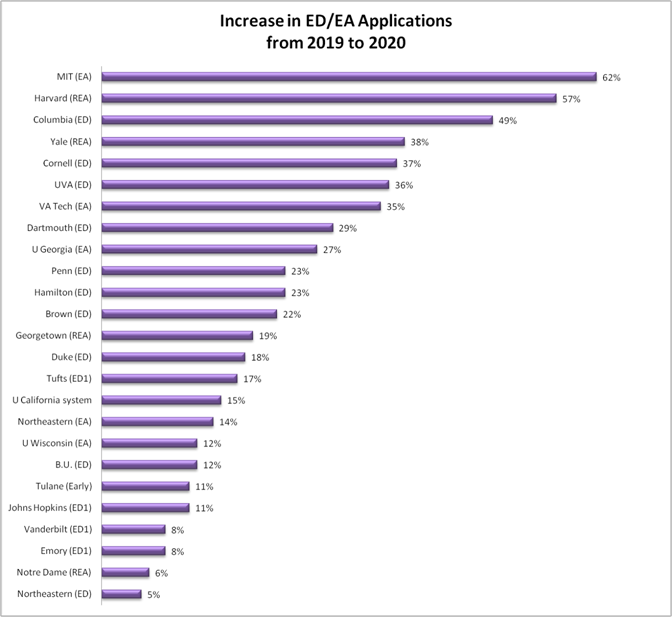Every year we work with a handful of deferred students on turning those defers into admits. Reach out to us if you want individualized, 1:1 guidance!
Some colleges and universities can’t admit all of the students they would like to via early decision or early action (“ED” or “EA”), so they defer some and evaluate them again during regular decision (“RD”). These candidates have a shot (albeit small at many top-top schools) at getting admitted RD. However, some schools just defer everyone or almost everyone! A not so nice practice. Most students who fall into this category should move on and focus on other schools. If you are not sure which category you fall into, reach out to us.
If you’d like some general guidance on working the deferral, you’ll find it below. But first, a few notes before doing anything to “work” a deferral:
1. Stay positive for RD, or preferably, early decision II (“ED II”), and keep moving forward on other apps! Those are much more important now.
2. Consider ED II if you are currently not. Not all schools have ED II; check your Common App to see if ED II is offered at any schools on your list. Why? because….
3. The RD round is tough and this year’s early numbers (at top-top schools where numbers are NOT down) demonstrate it might be even tougher than before; it is smart to get familiar with the ED I and RD numbers and understand why ED II can present a significant advantage over RD. Read this chart by Jeff Levy and Jeannie Kent. Pay particular attention to the percentage of the class filled by early plans.
4. Don’t make the same mistakes again (or again, and again…). You should be very open to doing a thorough evaluation of what might have gone wrong with your early app(s). With fresh eyes, you might find a few things you would change. Or, with the feedback from someone else, see that you missed the mark. If you’d like an expert evaluation of your deferred app, our “redo report,” contact us.
Other Tips:
–Get your guidance counselor’s support. Have your guidance counselor advocate for you (call) and reach out to your regional rep (or whoever their contact is in the admissions office). Make sure updated grades/transcripts are sent promptly. Your grades should have remained the same or improved, not dipped.
-If you applied test-optional, consider taking and/or sending scores. Colleges have always valued competitive scores and this year is likely no different.
–Get an extra letter of recommendation if the school notes you are allowed to send one*. This letter could be written by a teacher, coach, or someone else close to you who can speak to your background, performance, and potential.
*Side note on alumni letters and letters from well-known or famous people. Many students ask if these are helpful to send, and the answer is usually no. And…some schools explicitly state not to send any extras.
–Make contacts locally and talk to students and alumni. Reach out to local alumni chapters and ask if there is anyone willing to meet with you for an informal informational interview. Use this meeting as an opportunity to learn more about the school, and demonstrate your interest in attending. Information learned in these meetings are beneficial to include in your deferral letter.
-Connect with your regional rep and consider sending a deferral letter. You should have connected with them prior to applying, so this email won’t be out of the blue. Ask if they have any specific advice for deferred candidates. Are reasons for the deferral that you can address in the coming months (grades, test scores or lack thereof, lack of demonstrating interest, or understanding the mission and values of the school)? If you had an interview and established a good relationship with your interviewer, you can also reach out to them to see if they have any tips. A deferral letter should contain information updating the school on what you’ve been up to both inside and outside of the classroom since the time you applied as a way to show your fit for the school, how you will add value, etc. It should not be a list of your accomplishments or a brag sheet. Contact us if you would like some help with your deferral letter.
Secondary Efforts:
-Use social media to your advantage. Don’t be afraid to follow your top choice schools on Facebook, Instagram, or other social channels. Most schools also have LinkedIn pages you can follow. These touchpoints likely won’t help significantly, but can’t hurt as a way to demonstrate interest.
*Stay in the know! Subscribe*







